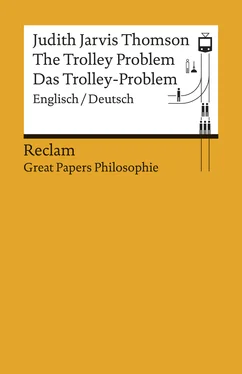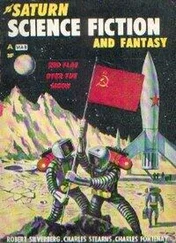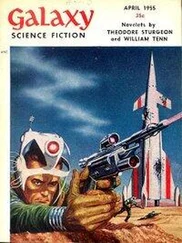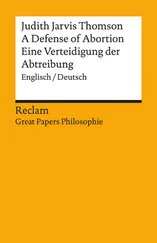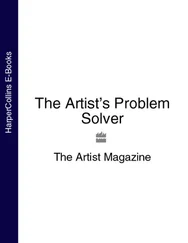Judith Jarvis Thomson
The Trolley Problem
Das Trolley-Problem
Englisch / Deutsch
Übersetzt und herausgegeben von Adriano Mannino und Nikil Mukerji
Reclam
2020 Philipp Reclam jun. Verlag GmbH, Siemensstraße 32, 71254 Ditzingen
Abdruck mit freundlicher Genehmigung der Yale Law Journal Company. Erlaubnis erteilt durch Copyright Cleareance Center, Inc.
Covergestaltung: Cornelia Feyll, Friedrich Forssman
Abbildungen im Nachwort: Iga Alberska ( www.igaalberska.com).
Gesamtherstellung: Philipp Reclam jun. Verlag GmbH, Siemensstraße 32, 71254 Ditzingen
Made in Germany 2020
RECLAM ist eine eingetragene Marke der Philipp Reclam jun. GmbH & Co. KG, Stuttgart
ISBN 978-3-15-961721-3
ISBN der Buchausgabe 978-3-15-019658-8
www.reclam.de
[5]The Trolley Problem Das Trolley-Problem
Judith Jarvis Thomson †
Some years ago, Philippa Foot drew attention to an extraordinarily interesting problem.1 Suppose you are the driver of a trolley. The trolley rounds a bend, and there come into view ahead five track workmen, who have been repairing the track. The track goes through a bit of a valley at that point, and the sides are steep, so you must stop the trolley if you are to avoid running the five men down. You step on the brakes, but alas they don’t work. Now you suddenly see a spur of track leading off to the right. You can turn the trolley onto it, and thus save the five men on the straight track [8]ahead. Unfortunately, Mrs. Foot has arranged that there is one track workman on that spur of track. He can no more get off the track in time than the five can, so you will kill him if you turn the trolley onto him. Is it morally permissible for you to turn the trolley?
Everybody to whom I have put this hypothetical case says, Yes, it is.2 Some people say something stronger than that it is morally permissible for you to turn the trolley: They say that morally speaking, you must turn it – that morality requires you to do so. Others do not agree that morality [1396] requires you to turn the trolley, and even feel a certain discomfort at the idea of turning it. But everybody says that it is true, at a minimum, that you may turn it – that it would not be morally wrong in you to do so.
Now consider a second hypothetical case. This time you are to imagine yourself to be a surgeon, a truly great surgeon. Among other things you do, you transplant organs, [10]and you are such a great surgeon that the organs you transplant always take. At the moment you have five patients who need organs. Two need one lung each, two need a kidney each, and the fifth needs a heart. If they do not get those organs today, they will all die; if you find organs for them today, you can transplant the organs and they will all live. But where to find the lungs, the kidneys, and the heart? The time is almost up when a report is brought to you that a young man who has just come into your clinic for his yearly check-up has exactly the right blood-type, and is in excellent health. Lo, you have a possible donor. All you need do is cut him up and distribute his parts among the five who need them. You ask, but he says, “Sorry. I deeply sympathize, but no.” Would it be morally permissible for you to operate anyway? Everybody to whom I have put this second hypothetical case says, No, it would not be morally permissible for you to proceed.
Here then is Mrs. Foot’s problem: Why is it that the trolley driver may turn his trolley, though the surgeon may not remove the young man’s lungs, kidneys, and heart?3 In both cases, one will die if the agent acts, but five will live [12]who would otherwise die – a net saving of four lives. What difference in the other facts of these cases explains the moral difference between them? I fancy that the theorists of tort and criminal law will find this problem as interesting as the moral theorist does.
Mrs. Foot’s own solution to the problem she drew attention to is simple, straightforward, and very attractive. She would say: Look, the surgeon’s choice is between operating, in which case he kills one, and not operating, in which case he lets five die; and killing is surely worse than letting die4 – indeed, so much worse that we can even say
(I) Killing one is worse than letting five die. [1397]
So the surgeon must refrain from operating. By contrast, the trolley driver’s choice is between turning the trolley, in [14]which case he kills one, and not turning the trolley, in which case he does not let five die , he positively kills them. Now surely we can say
(II) Killing five is worse than killing one.
But then that is why the trolley driver may turn his trolley: He would be doing what is worse if he fails to turn it, since if he fails to turn it he kills five.
I do think that that is an attractive account of the matter. It seems to me that if the surgeon fails to operate, he does not kill his five patients who need parts; he merely lets them die. By contrast, if the driver fails to turn his trolley, he does not merely let the five track workmen die; he drives his trolley into them, and thereby kills them.
But there is good reason to think that this problem is not so easily solved as that.
Let us begin by looking at a case that is in some ways like Mrs. Foot’s story of the trolley driver. I will call her case Trolley Driver ; let us now consider a case I will call Bystander at the Switch . In that case you have been strolling by the trolley track, and you can see the situation at a glance: The driver saw the five on the track ahead, he stamped on the brakes, the brakes failed, so he fainted. What to do? Well, here is the switch, which you can throw, thereby turning [16]the trolley yourself. Of course you will kill one if you do. But I should think you may turn it all the same.5
Some people may feel a difference between these two cases. In the first place, the trolley driver is, after all, captain of the trolley. He is charged by the trolley company with responsibility for the safety of his passengers and anyone else who might be harmed by the trolley he drives. The bystander at the switch, on the other hand, is a private person who just happens to be there.
Second, the driver would be driving a trolley into the five if he does not turn it, and the bystander would not – the bystander will do the five no harm at all if he does not throw the switch.
I think it right to feel these differences between the cases.
Nevertheless, my own feeling is that an ordinary person, a mere bystander, may intervene in such a case. If you see something, a trolley, a boulder, an avalanche, heading towards five, and you can deflect it onto [1398] one, it really does seem that – other things being equal – it would be permissible for you to take charge, take responsibility, and deflect the thing, whoever you may be. Of course you run a moral risk if you do, for it might be that, unbeknownst to [18]you, other things are not equal. It might be, that is, that there is some relevant difference between the five on the one hand, and the one on the other, which would make it morally preferable that the five be hit by the trolley than that the one be hit by it. That would be so if, for example, the five are not track workmen at all, but Mafia members in workmen’s clothing, and they have tied the one workman to the right-hand track in the hope that you would turn the trolley onto him. I won’t canvass all the many kinds of possibilities, for in fact the moral risk is the same whether you are the trolley driver, or a bystander at the switch.
Moreover, second, we might well wish to ask ourselves what exactly is the difference between what the driver would be doing if he failed to turn the trolley and what the bystander would be doing if he failed to throw the switch. As I said, the driver would be driving a trolley into the five; but what exactly would his driving the trolley into the five consist in? Why, just sitting there, doing nothing! If the driver does just sit there, doing nothing, then that will have been how come he drove his trolley into the five.
Читать дальше
